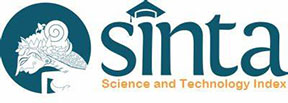The analysis of decomposition rate of Vermigot fertilizer (vermicompost and kasgot) by utilizing of Black Soldier Fly larvae and earthworms with and without technique feeding
DOI:
https://doi.org/10.32734/jopt.v8i3.7423Keywords:
vermigot, BSF larvae, earthwormAbstract
ABSTRACT
One of the efforts in managing waste is to carry out environmentally friendly bioconversion with one of the most popular composting is vermicomposting. The use of insects in composting is also one of the new technologies, namely the Black Soldier Fly larvae. The combination of two types of decomposing organisms that are synergistic can increase the effectiveness of the decomposition process. The purpose of this study was to analyze the rate of decomposition of vermigot fertilizer in the treatment of cow manure and banana stem waste by utilizing a combination of BSF larvae and earthworms. This study used a non-factorial randomized block design method with 2 techniques (feeding and without feeding), namely D0 = without decomposers; D1 = earthworm (100%); D2 = BSF larvae (100%); D3 = earthworms: BSF larvae (50% : 50% kg); D4 = earthworms : BSF larvae (25% : 75%); D4 = earthworms: BSF larvae (75% : 25%). The results of this study showed that the pH of the vermigot ranged from neutral to slightly alkaline (6.4 - 7.8) in the non-feeding technique, while the pH of the vermigot in the feeding technique was slightly acidic (5.7 - 5.8). The temperature of the vermigot in the non-feeding and feeding technique is the same, ranging from (26 - 31oC) but in the non-feeding technique the temperature tends to rise until the 5th day and tends to decrease on the 7th day to the 21st day. Meanwhile, the temperature of the vermigot with the feeding technique tends to experience fluctuations.
Downloads
Downloads
Published
How to Cite
Issue
Section
License
Copyright (c) 2022 Jurnal Pertanian Tropik

This work is licensed under a Creative Commons Attribution-ShareAlike 4.0 International License.






















